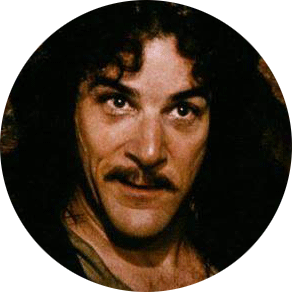For many its the Roman empire or the Greeks. Similarly ancient Egypt. Or the British empire. Maybe the Japanese, Chinese and Norse as the next 3.
I have deliberately not mentioned time periods there.
These are the most commonly beloved. What are your favourites and why?
Ancient Mesopotamia, hands down. You’ve got the Sumerians, the Babylonian empire, the Akkadian empire. There’s creation myths, flood myths, myths about great battles between the elder gods. Gilgamesh, Sargon, Hammurabi. Such cool artwork and artifacts were left behind for us to find. Friggin ziggurats. And they figured out writing, which has proven useful. Also they had cultural overlap with other notable societies like the ancient Israelites/Canaanites and Egyptians, which allowed for borrowing and retelling of stories, myths, and legends among the people of the time. Pieces of the story of Moses are apparent in Sargon’s personal account of his history. You can see lots of the Noah story in Gilgamesh, and also in Atrahasis. An elder, primordial god named Tiamat is an embodiment of sea water and its associated chaotic nature that existed in the void before creation, and is probably cognate with the Hebrew word “tehom” meaning “the abyss”.
Man if not for the damn abrahamic religions I wonder what the culture of the world would be like now with the old gods.
Say we keep Judaism and remove Christianity plus Islam, I think the world would be more interesting.
With what’s happening at Gaza I wouldn’t miss Judaism too.
I wonder, too. But, the flavors of nature are ever changing, and also I think the ancient Israelites kind of inadvertently set their religion up in such a way that eventual division was kind of inevitable. Prophets can be born or inspired to deliver a message at any time at all, and a concept of the destruction and renewal of the world was noteworthy at least as far back as the Book of Daniel at ~200BCE. Check out Jewish Apocalypticism for a little more about that. But the transition from pantheon to monotheism that took place in the ancient Near East is a really interesting time period not only because of the really cool diversity of myths it produced but also because it took place at a time where history was just starting to be recorded, so there’s just so much cool interactions going on between cultures, a rapidly evolving and diversifying larger civilization, lots of languages with overlapping and phonetically-similar words but varying means of recording their language, religious leaders and their students often being among the very few who could read anything being documented (imagine the power imbalance that created).
Really interesting section, thanks for sharing. Would be cool to see some videos made on the matter with references to texts. Like explaining that Tiamat part with paragraphs from their texts talking about it.
Nice! Look for content about the Enuma Elish (which is basically like the Babylonian creation story) to hear all about Tiamat and their counterpart, Apsu (embodiment of fresh waters amongst the void) and their relationship followed by an eventual battle that ensues between descendants of Apsu and Tiamat, leading to a god named Marduk becoming the head of their pantheon (and also the god that raised Babylon from sand into a great city). From there, check out the wiki for tehom and if you’re looking for videos, peruse the online video warehouse of your pleasure for links between Babylonian Tiamat and Hebrew tehom and you will not be disappointed. I’m pretty sure Richard Elliot Friedman covers it in one of his lectures about the Hebrew Bible/OT, although I can’t recall exactly which one offhand.
Rome, but not the empire part. I love aqueducts and construction/mechanical engineering. The things they did without electricity is amazing to me.
This is great. I love the niche.
For some reason I’m really interested in Ancient Middle Eastern history and mythology, eg Mesopotamian, Canaanite pantheon, etc
There’s some good work being done on the pre Islamic Arabian gods which is very fascinating.
That’s interesting, I didn’t know it was a pantheon. I was under the impression that Zoroastrianism, with its one creator god Ahura Mazda dominated in the region before Islam.
My neighborhood museum had a special exhibit about this a few years back. It was fascinating. Have you read about this? https://news.artnet.com/art-world/enheduanna-first-author-mesopotamian-women-morgan-library-2208775
Years of Lead in Italy, i don’t know why maybe it’s because something’s still a mistery that needs to be understood https://en.wikipedia.org/wiki/Years_of_Lead_(Italy)
Incredible times, at least one homicide every day. Frequent mass bombings, kidnapping, eastern and western interference in national politics: what a time to be alive. (Not really lol)
I’m a fan of Cold War and am italian so i love too that period.
For me its Mughal India and the Indus Valley Civilisation.
I’m a huge WW2 enthusiast. It’s one of the very few things I can confidently say I know a lot about. And even then, I still learn new things about it from time to time.
Random interesting fact: In 1974 a wargame was conducted to see what might have happened if the Germans had actually launched Operation Sealion (the planned invasion of Britain in 1940). They found that it would have been a catastrophic defeat for Germany.
The Alans, from 1st-century Central Asia through late antiquity.
Oh very good call. I’m not particularly knowledgable on them.
I really like the Holy Roman Empire with all its small territories across the European continent. I am especially interested in the modern era though, so let’s say 1618 - 1806. But I am also really interested in the European revolutions in general, from the French to all the little ones in the 1830s, 1848 etc.
My relationship to history is a bit weird in general. I am a person who needs to understand a period of time very well, before I can dig into a period earlier. So I am kind of building my historical concept from today, year by year and epoch and epoch into the past. I just don’t know enough to step into the middle ages yet.
Now that I am thinking about it, that’s true for a lot of other fields… I had many problems with electrical engineering in university, because I couldn’t fully grasp the concept of quantum physics before doing the experiments, and that really stressed me out lol
I get the desire to move backwards in time. That goes for me too, to a lesser extent than you though.
Another useful way that I think might help you is to just see what else is happening in the world in that time period. That helps you create an anchor just as knowing what cones after does.
So I am kind of building my historical concept from today, year by year and epoch and epoch into the past.
That’s so odd to me because of how much the previous periods influenced what came next. Like how much of the absolute monarchical power and economic imbalance and (relatively) free access to information caused the peasant classes to rise up in the French Revolution.
I’m not criticising or anything just seems to me to be topsy-turvy.
Let me try to explain… It is impossible to understand WW2 if you do not understand the Weimar Republic and WW1 for example. That’s why I try to understand an epoch and as soon as I “run out of explanations” I go to the events that influenced it.
The other way would be to start at the “beginning of history” but that is clearly impossible to define.Just looking at a single event somewhere between 1520 and 1530 however is an island without context, I fail to understand without knowing what was around.
WW2. It really was the greatest generation full of amazing and terrible people. Winston Churchill story alone is breathtaking let alone all the smaller stories and experience of all people who played a roll large or small.
My favourite period it’s the Cold War and i’m very fascinated about the Eastern Bloc and USSR in particular :)
Right now? Post US revolutionary war. In particular in the formation of the constitution and what influenced it.
I personally love reading about ancient Mesopotamia and China in The Warring States Period.
Not empires specifically but how religion shaped / influenced them. Basically the history of collective thought and value systems and how they came about. Christianity’s take over of Rome, Islam’s rise in the Arabian peninsula, Buddhism’s rise and fall in India, the Vedas etc.
The golden road, by William Darylmple has a good collection about Buddhism and religion from India and how it spread across the world.
I would say the neolithic, if that falls under the umbrella. That was when we first got serious about this Human stuff.
Any and all city state cultures. Especially the Maya. Every one of them produces beautiful works of art and I believe that has a lot to do with the polity system.







